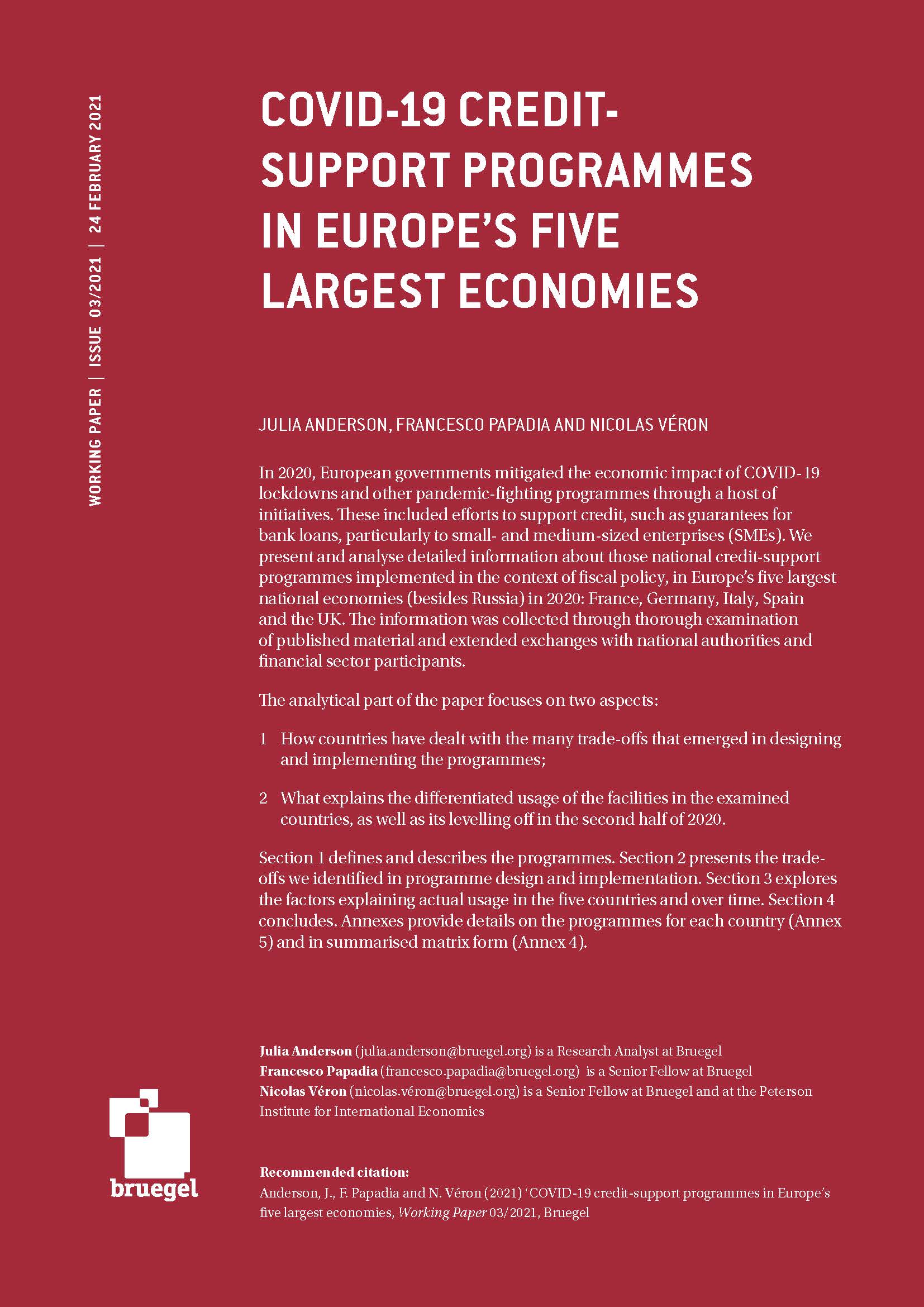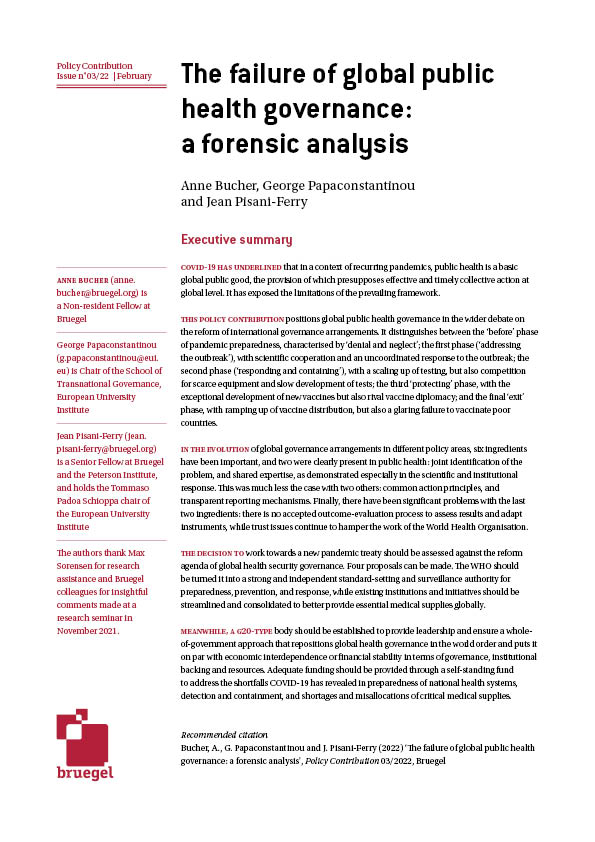Working Paper
COVID-19 credit-support programmes in Europe’s five largest economies
This paper assesses COVID-19 credit-support programmes in five of the largest European economies, and examines how countries have dealt with trade-offs raised by the programmes.
In 2020, European governments mitigated the economic impact of COVID-19 lockdowns and other pandemic-fighting programmes through a host of initiatives. These included efforts to support credit, such as guarantees for bank loans, particularly to small- and medium-sized enterprises (SMEs). We present and analyse detailed information about those national credit-support programmes implemented in the context of fiscal policy, in Europe’s five largest national economies (besides Russia) in 2020: France, Germany, Italy, Spain and the UK. The information was collected through thorough examination
of published material and extended exchanges with national authorities and financial sector participants.
The analytical part of the paper focuses on two aspects:
- How countries have dealt with the many trade-offs that emerged in designing and implementing the programmes;
- What explains the differentiated usage of the facilities in the examined countries, as well as its levelling off in the second half of 2020.
Section 1 defines and describes the programmes. Section 2 presents the trade-offs we identified in programme design and implementation. Section 3 explores the factors explaining actual usage in the five countries and over time. Section 4 concludes. Annexes provide details on the programmes for each country (Annex 5) and in summarised matrix form (Annex 4).
Recommended citation:
Anderson, J., F. Papadia and N. Véron (2021) ‘COVID-19 credit-support programmes in Europe’s five largest economies, Working Paper 03/2021, Bruegel












